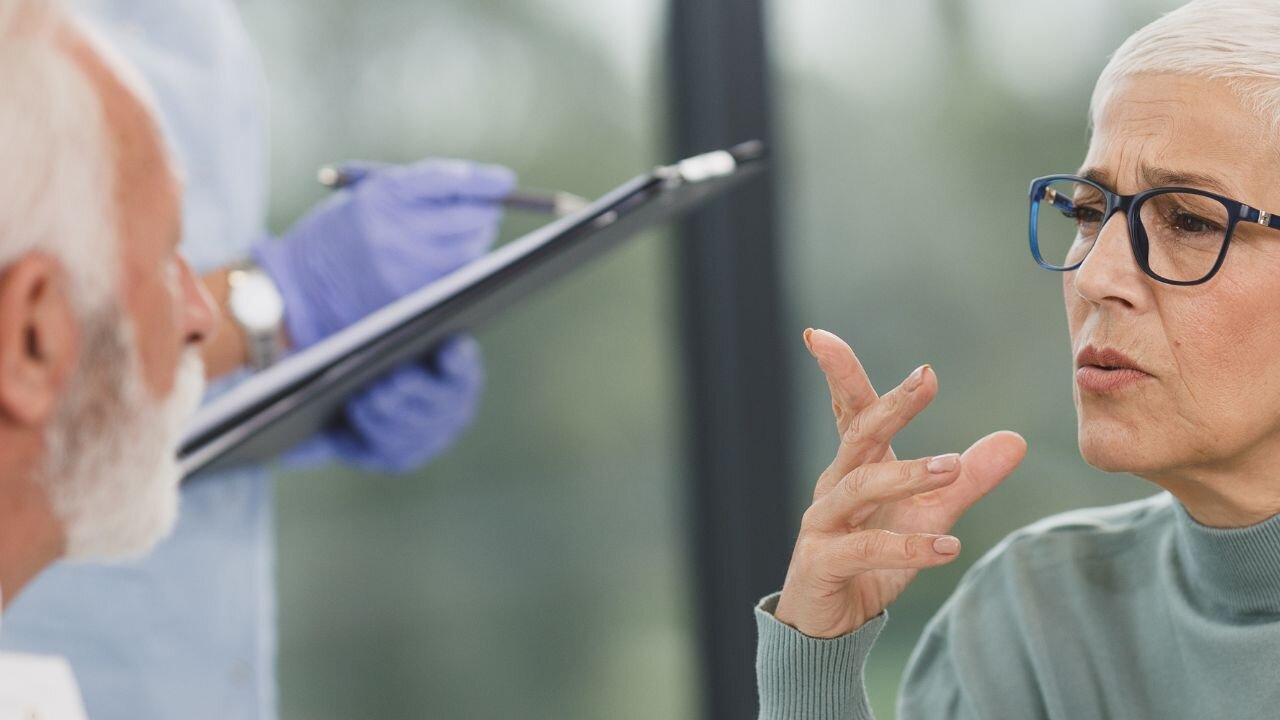Premium Only Content

Almost one-third of women have never told anyone about their physical issues
Almost one-third of women have never told anyone about worrying physical issues, according to new research.
From weight issues (36%) to thinning hair (29%), a recent survey of 2,000 women found that 30% haven’t spoken to anyone about the issues they’re experiencing.
Beyond weight issues and hair thinning, women also reported concerns about hair quality (32%), acne (26%), cellulite or stretch marks (30%) and even chronic fatigue (24%).
But when asked which issues they’re most uncomfortable with, weight issues (23%) and hair thinning (23%) tied for the number one spot.
At peak discomfort, women have taken matters into their own hands and bought or used products to fix the issue (35%), changed their diet (30%) and considered both surgical (25%) and non-surgical (24%) options.
Women also admit these problems have even forced them to stay home from work or stayed off camera while working remotely (27%) and even avoid seeing friends and family (24%).
The research, conducted by OnePoll on behalf of Nutrafol, was launched to mark Hair Loss Awareness Month in August and sought to examine how women are impacted by hair thinning, beyond just the physical effects.
Of the 57% of women who've spoken to someone about their concerns, hair thinning came out on top (18%), double the amount who've addressed acne/blemishes (9%) and more than those with weight issues (12%).
When they first experienced hair thinning, women’s attitudes shifted. Of those who have experienced thinning hair, many reported feeling sad (46%), embarrassed (43%) or even scared (42%).
Beauty standards are also attributed to these pessimistic feelings, as more than half (56%) agree that those standards had a negative impact on them, particularly for African American women (63%, compared to 53% of Caucasian women.)
Hair thinning has crippled many, with women reporting negative impacts on their self-confidence (45%), professional career (33%) and even their personal relationships (30%).
The effects of hair thinning run so deep that women also reported no longer feeling like themselves (39%) or even feeling less like a woman (32%).
“Physical changes are a natural part of the aging process, but for many women, this can cause new insecurities related to appearance or anxieties around not feeling like themselves,” said Board Certified Dermatologist, Dr. Michelle Henry, MD. “I commonly see patients who are experiencing hair thinning and are unsure how to address it, or where to turn to for support. It can be an incredibly isolating experience.”
Women in different life stages shared different attitudes and beliefs around hair thinning. Millennials were likely to attribute it to environmental factors, like pollution (21%), compared to 13% of Gen X and only 7% of baby boomers.
Millennials were more likely than any other generation to not like talking about their hair thinning with other people (44%, compared to 37% of Gen X and 36% of baby boomers).
They were the most likely to say their professional career has been impacted by their hair thinning (41%, compared to 27% of Gen X and 11% of baby boomers).
Two-thirds of respondents agree that on any particular day, the way their hair looks can completely change how they feel about themselves.
In fact, the average woman experiencing hair thinning is preoccupied with thoughts about the issue about 15 different times each day.
However, that doesn’t mean women aren’t optimistic — compared to five years ago, one-third feel the same way about their hair now and 31% feel better. And in another five years’ time, an additional one-third expect to feel better about it.
“Science has proven that hair thinning is multifactorial and luckily, there are non-invasive ways to target these root causes – whether it’s a lack of collagen due to aging, hormonal or metabolic changes, or day-to-day stress,” said Dr. Henry. “I often recommend clinically-tested supplements that address many of the contributing factors of thinning, and in turn, can increase well-being from the inside out.”
HOW DO WOMEN HANDLE PHYSICAL PROBLEMS THEY FIND EMBARRASSING?
● Tell only their doctor - 34%
● Confide in family/spouse/partner - 33%
● Confide in a few trusted friends - 27%
● Not talk about it - 19%
● Talk about it openly - 18%
● Join a private support group - 16%
● Tell only my holistic practitioner - 15%
● Tell only my cosmetology worker - 15%
Survey methodology:
This random double-opt-in survey of 2,000 American women was commissioned by Nutrafol between July 19 and July 25, 2023. It was conducted by market research company OnePoll, whose team members are members of the Market Research Society and have corporate membership to the American Association for Public Opinion Research (AAPOR) and the European Society for Opinion and Marketing Research (ESOMAR).
-
 0:48
0:48
SWNS
6 hours agoHottest careers for men and women in 2025
2 -
 1:15:25
1:15:25
Graham Allen
2 hours agoTrump BULLIES Colombia Into Following His Policy!! + FINALLY PETE IS CONFIRMED!
10.1K47 -
 1:01:50
1:01:50
Kyle Fortch
1 hour agoCallum Kerr Joins Netflix’s Biggest Shows & Signs First Record Deal | THE ONE SHEET S1E1
1 -
 LIVE
LIVE
Matt Kohrs
8 hours agoMARKETS CRASH: The DeepSeek Panic || The MK Show
1,739 watching -
 39:56
39:56
BonginoReport
2 hours agoTrump Alpha-Males Colombia (Ep.126) - 01/27/2025
58.1K81 -
 LIVE
LIVE
Jeff Ahern
2 hours agoMonday Madness with Jeff Ahern (6am Pacific)
423 watching -
 1:21:30
1:21:30
Game On!
10 hours ago $1.26 earnedPatrick Mahomes does it AGAIN!
7.83K3 -
 15:20
15:20
Misha Petrov
2 hours agoReacting To Liberal MELTDOWNS Over Trump’s Return - Gen Z Is Planning a REVOLUTION?!
23.8K16 -
 18:22
18:22
Neil McCoy-Ward
3 hours agoThe 🇨🇴 Colombian President Just Learned The HARD WAY!!! (Another Win For The USA 🇺🇸)
13.3K8 -
 1:56:04
1:56:04
TheDozenPodcast
18 hours agoMass deportations, Islamists, Saving the UK: Nick Tenconi
25K20